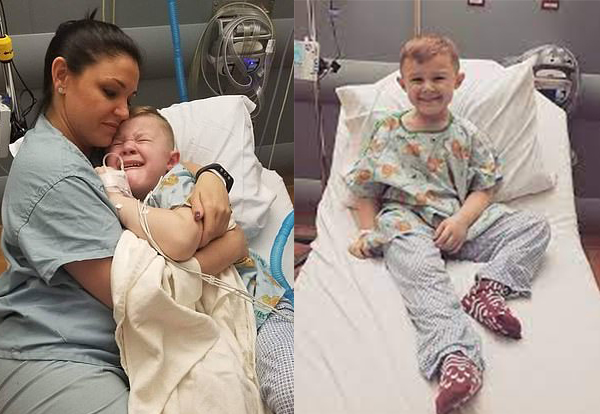Aging is a natural part of life. And when a person goes into their sixties, they begin experiencing changes in their body. For example, weakening of the bones and the development of diseases that your once youthful body staved against. Some people who had minor accidents in their youth start feeling pain in the affected area too.
In such cases, a specialist is recommended. Many elders and their families believe that a primary care doctor would suffice. But if that’s the case, geriatricians wouldn’t be needed. You can apply the same logic to pediatricians too.
The human body in its early stages is very different from an adult’s. There are physical reactions that only happen to children and pediatricians specialize in those. The same thought applies to a really old body.
Let’s talk about what geriatricians are in-depth and whether they’re truly necessary for seniors.
Geriatricians: What Are They?
In a hospital, you’d find among the listings of doctors that they have a geriatrician, but what are they? Geriatricians are primary care physicians. But they specialize in diagnosing and treating the conditions of the elderly.
It’s becoming an increasingly rare specialty. This is partly because the government’s healthcare insurance program has low reimbursement rates. That is when it comes to the conditions of the elderly. Many geriatricians don’t earn much compared to other specialists.
In the US, there are only over 6,900 certified geriatricians according to the estimate of the American Society of Geriatrics. As the US population continues to thrive and live well past their sixties, geriatricians will be in more demand than ever.
If you’re reaching 65 (retirement age) soon, you can start considering finding a geriatrician near you. This also applies if you have a health condition that usually affects the elderly as a geriatrician will know what to do.
Especially when COVID hit, it’s best to have someone who knows how to handle your conditions in your sixties.
What Do Geriatricians Specialize In?
Earlier, we mentioned that they specialize in treating the conditions and illnesses of the elderly but we haven’t gone into detail yet. There is a wide range of diseases and conditions that affect the elderly. You might be familiar with some of them already. They include the following:
- Dementia
- Osteoporosis
- Incontinence
- Cancer
- Hearing and vision loss
- Osteoarthritis
- Insomnia
- Diabetes
- Depression
- Heart Failure
- Frailty
- Balance Issues
If you or someone you know is experiencing any of these, contact your nearest physician or check out the nearest doctor to my location.
Geriatricians can prescribe medicine for maintenance and recommend treatments to aid the patient. While those aforementioned naturally occur, geriatricians can ensure that they won’t impede your daily life.
They can also integrate care from your other healthcare providers by acting as a point of contact. They’ll be able to keep track of the drug interactions in your body and prioritize necessary treatments.
In effect, geriatricians help foster healthy aging for their patients. Because aging presents unique challenges, geriatricians give aid to ensure a smooth transition. It’s a new chapter in the patient’s life after all. That way, they can keep enjoying their family life and living environments.
Negative stereotypes about aging can affect the patient’s health too so it’s also the geriatrician’s job to combat and dispel them.
Geriatrician vs. Gerontologist
You might have heard of a gerontologist and wondered how they differ from a geriatrician.
A geriatrician is a fully trained medical doctor that specializes in the care of the elderly. They graduate from medical school and complete residency requirements. They then work to become state-licensed and practice medicine.
Any doctor who intends to become a geriatrician must become board-certified in internal o family medicine. Another requirement is to complete the geriatric medicine fellowship at an accredited facility. And finally, they need to pass the Geriatric Medicine Certification Examination.
Meanwhile, gerontologists aren’t medical doctors. However, they’re still professionals in the issues of aging. They may be professionals in many fields too, like dentistry and psychology. They may be knowledgeable in nursing and social work as well.
Any of them can work to receive a certification in gerontology to prepare themselves in providing care to the elderly.
What are the Benefits of Having a Geriatrician?
Needless to say, the biggest benefit to having a geriatrician is having someone with specialized training in their field. They can diagnose, prevent, and treat any medical and health conditions related to the elderly.
They will give you the most advanced care available for older adults. Doctors in geriatrics also tend to have comforting and gentle attitudes. They intend and hope to improve the quality of life for the elderly. In essence, they see the bigger picture.
For example, it’s common for the elderly to take multiple medications for their conditions. However, a geriatrician can help them prioritize which medicine is necessary and which is skippable. That way, you can avoid any negative side effects from too many medications.
Conclusion
Geriatricians are a necessity for the elderly, especially if they’re suffering from many conditions. This is because all of the medications they take can have harmful side effects when they interact inside their body.
A primary care doctor can prescribe the medicine for each condition. However, a geriatrician can prioritize the necessary medication. Geriatricians can also prescribe treatments for illnesses among the elderly.
That said you can consult a geriatrician if you’re suffering from that kind of disease even if you’re not in your sixties. Those diseases can be insomnia, dementia, and osteoporosis. Hearing and vision loss is normal for elders as well. You can seek the nearest doctor’s office or geriatrician to have it checked.
If the elder isn’t suffering from a series of conditions and is relatively healthy, they may not need to see a geriatrician. However, you can opt to have a session scheduled and decide from then on if they require more sessions.
Finally, be wary of the difference between a geriatrician and a gerontologist. We’re not suggesting avoiding gerontologists. They’re great for patient care and social work, especially since many of them specialized in a related field. However, if you truly want someone who specializes in the conditions of the elderly, seek a geriatrician.




